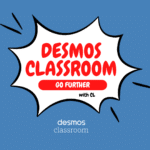As modern education embraces innovative tools and strategies, one pedagogical approach that has consistently proven effective is retrieval practice. Often undervalued, retrieval practice – the act of recalling information without cues – is a potent tool for strengthening memory and enhancing long-term learning. It moves away from rote memorization, encouraging students to actively recall information, thereby cementing the knowledge in their brains. Using Padlet can help you to maximize retrieval practice.
Retrieval Practice Benefits Learners
Retrieval practice is a learning strategy based on the premise that students recall information better when they actively retrieve it from their memories. It is often contrasted with passive forms of study, like re-reading or reviewing notes, which are less demanding but also less effective for long-term learning. In retrieval practice, the student is prompted to remember information, thus strengthening their memory and comprehension of the subject matter.
Retrieval practice might take the form of writing a summary of a book chapter from memory, recalling the definition of a literary term, or composing a short essay about a character’s motivations without referring back to the text. These activities require students to draw information from their memory, which solidifies their understanding and recall of the subject matter.
Generative AI Such as ChatGPT
In the age of generative AI, retrieval practice is more important than ever. As AI tools become more sophisticated, they offer shortcuts for tasks like writing or summarizing information. However, these tools should not replace the process of actively recalling and synthesizing information, which is crucial for deep understanding and long-term retention.
While AI can generate summaries or essays, it cannot replicate the cognitive process a student undergoes when they engage in retrieval practice. This process involves making connections between different pieces of information, understanding their context, and applying them in a new format – all skills that are critical for real-world problem-solving and creativity.
Padlet Boards
Enter Padlet, a digital platform that has quickly become a favorite among educators and learners alike. Its flexibility and simplicity can serve as an excellent ally for retrieval practice. You can use Padlet for retrieval practice, powering your teaching techniques for impactful learning.
Padlet And Retrieval Practice: A Perfect Blend
At its core, Padlet is an online bulletin board where users can post notes on a common page. Each note can contain text, links, images, and even videos. This feature can be repurposed to facilitate retrieval practice in a dynamic and engaging manner.
You can create a Padlet wall dedicated to a specific topic you’ve covered in class. For a retrieval practice session, ask students to post what they remember about the topic without referring to any resources. This could be in the form of summaries, mind maps, key points, or infographics. Encourage students to visualize the material in their minds before posting.
Setting Up Padlet for Retrieval Practice
Padlet’s intuitive design allows you to structure retrieval practice in a way that guides your students and reduces cognitive overload. As an educator, you have the ability to customize your Padlet wall to suit the specific needs of a retrieval practice session.
For example, if you are dealing with a complex topic that you want your students to retrieve information about, you can break down this process using Padlet. Start by creating a new Padlet board and title it with the topic of the retrieval practice session. You can use the description or subtitle area to provide an overview of the topic, or to set the rules for the retrieval practice session.
Make use of the ‘columns’ format in Padlet, which allows you to create separate sections within your Padlet wall. Each column can be labeled with a guiding question related to the topic. For example, if you’re doing a retrieval practice on the Civil War, your columns might be labeled “Causes of the Civil War”, “Major Events”, and “Impact of the Civil War”.
Students can then post their responses directly under these guiding questions, focusing their recall efforts on specific aspects of the topic. Each post can be a simple text response, or can include visual elements, like diagrams or images, to support their recall.
This feature of Padlet, to structure content with columns and guiding questions, not only helps to scaffold the retrieval practice process, but it also visually organizes the information in a way that is easily digestible for students. It supports their retrieval practice by providing a clear framework for recall, thereby reducing the cognitive load associated with remembering complex information.
Tips On Using Padlet For Retrieval Practice
1. Use Prompting Questions:
Instead of leaving the retrieval practice entirely open-ended, you could provide a set of guiding questions. This gives students a direction and makes the task less overwhelming, especially for complex topics.
Prompting questions, integrated within retrieval practice, provide an effective strategy for focusing students’ recall in a more structured way. They guide the students’ recall process and offer a clear path, particularly useful for complex topics that might be overwhelming. When using Padlet for retrieval practice in your ELA classroom, this strategy can be employed seamlessly. You can create a new Padlet wall for a topic and populate it with guiding questions. Students respond directly on the Padlet, recalling and reinforcing their understanding of the material.
Padlet’s visual layout allows students to see their peers’ responses, enhancing academic discussion and further deepening recall. Teachers can assess these responses to identify areas of strength and gaps in understanding, helping tailor future instruction. In sum, using prompting questions on Padlet streamlines retrieval practice, guiding students in a clear direction and scaffolding their recall efforts effectively.
2. Facilitate Peer Learning
Padlet’s interactive nature fosters peer learning. Students can view each other’s posts, providing an opportunity for collaborative learning. They can compare their recall with others and fill in gaps in their understanding. This interactive dynamic offers a collaborative learning environment that transcends the traditional individualistic nature of retrieval practice.
3. Incorporate Feedback
Providing feedback is a critical part of retrieval practice, and Padlet seamlessly integrates this aspect into its platform. The ability to comment on students’ posts offers a direct avenue for teachers to guide and shape students’ understanding, which is key to effective learning.
In retrieval practice, students are tasked with recalling and applying information from their memory. However, remembering doesn’t always equate to understanding. Some students may remember the information inaccurately or lack a deeper grasp of its significance. Here, teacher feedback is essential. It serves to correct misconceptions, clarify confusions, and deepen comprehension. Feedback can direct students back to the core material, reinforcing the correct information in their memory.
Padlet, with its interactive features, facilitates this teacher-student communication effectively. By providing feedback directly on students’ posts, teachers can make their advice specific, timely, and relevant. This process also allows teachers to gauge the effectiveness of their instruction and modify it as needed.
4. Organize Review Sessions
Regularly revisit previous Padlets for spaced repetition of retrieval practice. This reinforces the material and enhances retention.
Padlet’s digital interface makes the review process convenient and straightforward. You can easily access past Padlets that you’ve used for different lessons, enabling you to organize review sessions that involve recalling information from earlier topics. These digital ‘walls’ can serve as archived learning moments, each holding a wealth of student responses and reflections that are ready to be revisited.
5. Ensure Variety
Maintaining variety in retrieval tasks is a key aspect of keeping students engaged and interested in their learning journey. This principle is particularly significant when incorporating retrieval practice into your teaching as it can involve repetitive elements. Padlet’s versatility supports teachers in implementing a wide array of retrieval tasks, ensuring that students continually find the learning process stimulating and effective.
Simple recall tasks can be transformed into an interactive and dynamic process on Padlet. For instance, you can prompt students to post short answers to recall questions about a text they’ve read, or perhaps ask them to post key vocabulary terms along with their definitions or examples. As students populate the Padlet with their responses, the digital ‘wall’ becomes a collective knowledge bank, demonstrating the power of communal learning.
Padlet isn’t just for text-based responses. It allows students to upload images, hyperlinks, and even videos, which means your retrieval tasks can take on various forms. This feature can be utilized for more complex tasks, such as creating concept maps or timelines. For example, after reading a historical novel, you could challenge students to create a timeline of key events in the story and post it on Padlet. Similarly, students could illustrate complex concepts from a piece of literature, such as character relationships or thematic developments, using a concept map or infographic and then share their visual representations on Padlet.
Retrieval Practice
Retrieval practice is a simple, yet powerful, learning strategy. It encourages deep learning, fosters understanding, and enhances long-term retention. Coupled with a flexible and interactive tool like Padlet, it can be an engaging and effective learning technique.
Remember, the key to effective retrieval practice is to make it a regular part of the learning process. Regularly revisit previous topics, prompt students to retrieve and actively engage with the material, and provide feedback. By doing so, you can cultivate an enriching learning environment that not only imparts knowledge but also strengthens memory and critical thinking abilities.
- EdTech is Not Scary: 5 Things to Start With
- Google Drive Recent Press N
- The Moments In Between By @biologygoddess
- Google Classroom: Get Out of Suggestion Mode
- Push a Prompt to Slides
-
Chrome for the Classroom: Essential Updates Every Teacher Should Know
Chrome is always improving. If you use Chrome for the classroom you will want to check out these essential updates.
-
30 Keyboard Shortcuts That Teachers Need
The secret to feeling more confident on the computer is keyboard shortcuts! Here are 30 Keyboard Shortcuts That Teachers Need
-
Hide All Tabs – Google Sheets
Have a lot of tabs in your Google Sheets spreadsheet? Here is how to hide all tabs at once, quickly.
-
Transform Your Lessons: The Power of Desmos Classroom Computation Layer
Take Desmos Classroom even further with the computation layer. Customize your lesson with the CL.
-
Get Real-Time Insights into Student Thinking
Desmos Classroom is a FREE tool that allows you to gain real time insights into student thinking during a lesson.
-
Analyzing AI Created Rubrics Essentials for Teachers
Analyzing AI Created Rubrics: Discover the critical elements of effective rubrics and how to assess the quality of AI-generated options.














